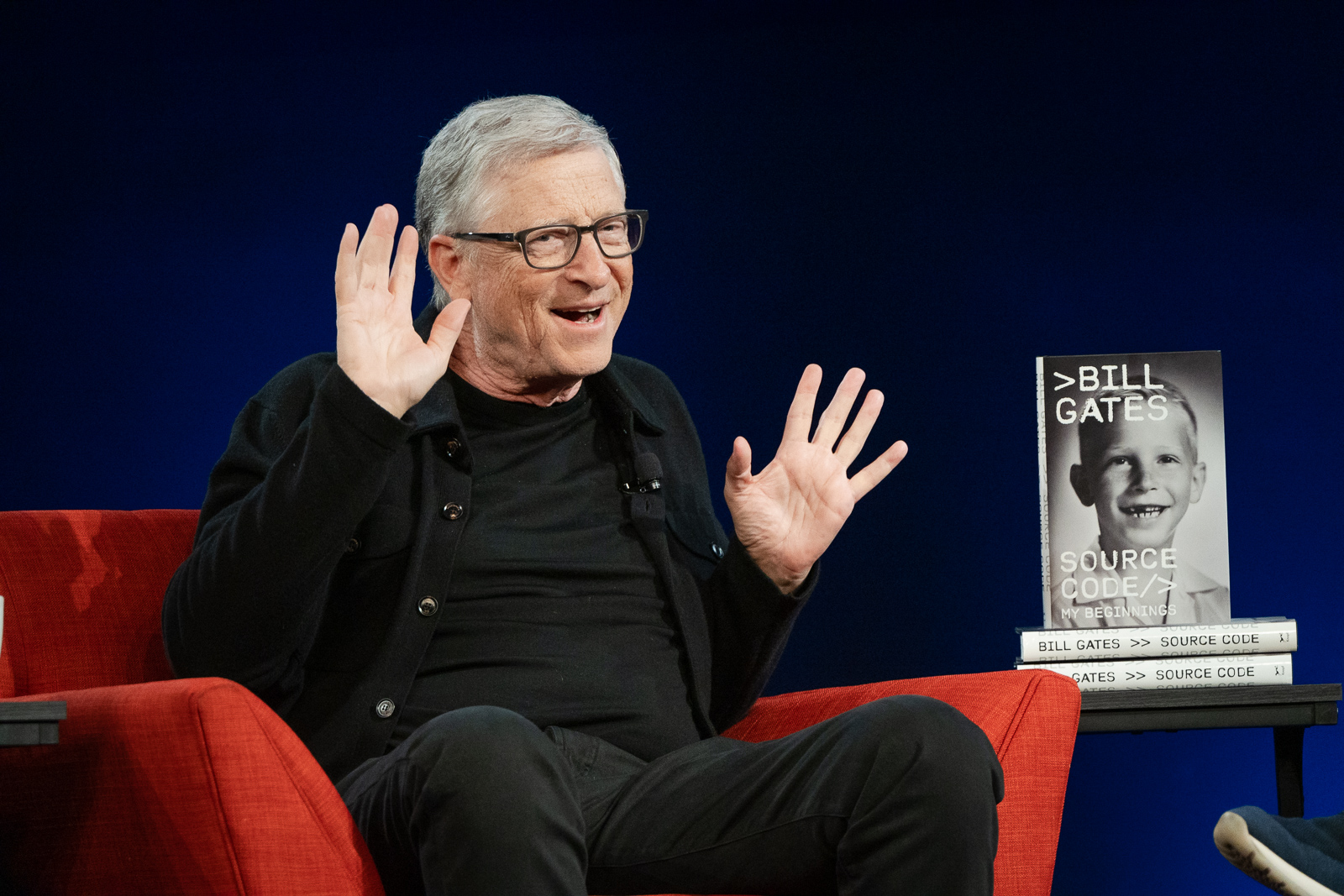Bill Gates, a billionaire tech mogul and philanthropist, has authored several books on business and technology and more recently, on climate change and global health. Now Gates has written his first memoir, Source Code, a coming-of-age story about his childhood and the formative years of Microsoft, just at the cusp of its revolutionary success.
“Source Code is about my life before Microsoft, the people who shaped me. The experiences that changed me,” Gates announced in a video before striding onto a stage at the Computer History Museum on Feb. 11.
In front of a packed audience, Gates discussed his latest book with Patrick Collison, co-founder and CEO of Stripe. The talk largely centered on how Gates became one of the most influential entrepreneurs of our time, while also providing insights about where society and technology is headed in the next 20 years.

Gates attributed much of his professional success to his ability to concentrate and dig into topics that deeply interested him, even at a young age. But he also noted that he was a difficult child, and likely would have been diagnosed on the autism spectrum if had grown up in today’s society, instead of in the 1950s and 60s.
By Gate’s own admission, he developed social skills at a late age and was prone to hyperactivity. At the age of 70, Gates still rocks back-and-forth when he is in deep thought, a habit that sometimes drives other people crazy, he laughed.
Gates sees these quirks as attributes and part of his success as a tech founder. “If I had been given the ability to get rid of those things so that I would be normal, socially in those things, it would have been to my detriment,” he said.
Gates also had free rein to pursue his passions as a young teenager without much adult oversight, something that a lot of kids don’t have today, he said. He went on extended overnight hiking trips with just friends and sneaked out of his house many nights to debug software at a computer center in Seattle.
Gates says his family was supportive of him, even if they didn’t always understand his choices, like dropping out of Harvard to turn personal computers into a reality.
At just 19 years old, Gates started Microsoft in 1975 with his childhood friend, Paul Allen.
“The slogan of Microsoft was, ‘A computer on every desk and in every home, running Microsoft software,’” Gates said, adding that the last part was sometimes taken out because it sounded too commercial.
Gates also described some of Microsoft’s legal troubles not covered in the book, which is the first part of a trilogy and ends in 1980. As Gates recounted, Apple had accused Microsoft of stealing key design elements from its source code in 1988.
“We said, ‘No, no, we both stole it from Xerox. You have no say whatsoever,’” Gates said, referring to the work of Xerox’s Palo Alto Research Center. “It was essentially an open-source set of technologies,” Gates said. Ultimately, the courts ruled in Microsoft’s favor.

Not just looking to the past, the discussion also veered into the present day and the future. Collison pressed Gates on whether life was better for a kid growing up in the U.S. today or in the mid-20th century.
Gates acknowledged that he had a privileged childhood. But life is better now for the average person and will keep getting better, according to Gates — although he added a few caveats.
Nuclear war was a major concern in the 1950s and 60s. Nowadays, it’s events like bioterrorism, pandemics, climate change and controlling AI. Still, this was not enough to dampen Gate’s positive outlook overall.
“If anybody thinks it was better back in 1955 for women, or people who were gay, or people who got heart disease or cancer, I mean, it’s just insane,” Gates said. “The big headline is people are living longer, people are learning more, people are more literate.”
Gates also saw AI as not something to be afraid of but as something to embrace, given its vast potential to improve society. The digital revolution has made computing, storage and communications more accessible, but intelligence is still scarce, Gates said.
AI can help in this regard, tipping the balance to create more equitable market allocations. “I want the poorest African farmer to have better advice about when to plant, what to plant, all of these practices that the richest farmer in the world has today – by using AI,” he said.
Gates also noted major gains in medicine that could be advanced by AI, like Alzheimer’s and obesity as well as HIV/AIDS, malaria, polio and measles.
“We’re going to be so much better off,” Gates said. “The pace of innovation is greater today than ever.”


